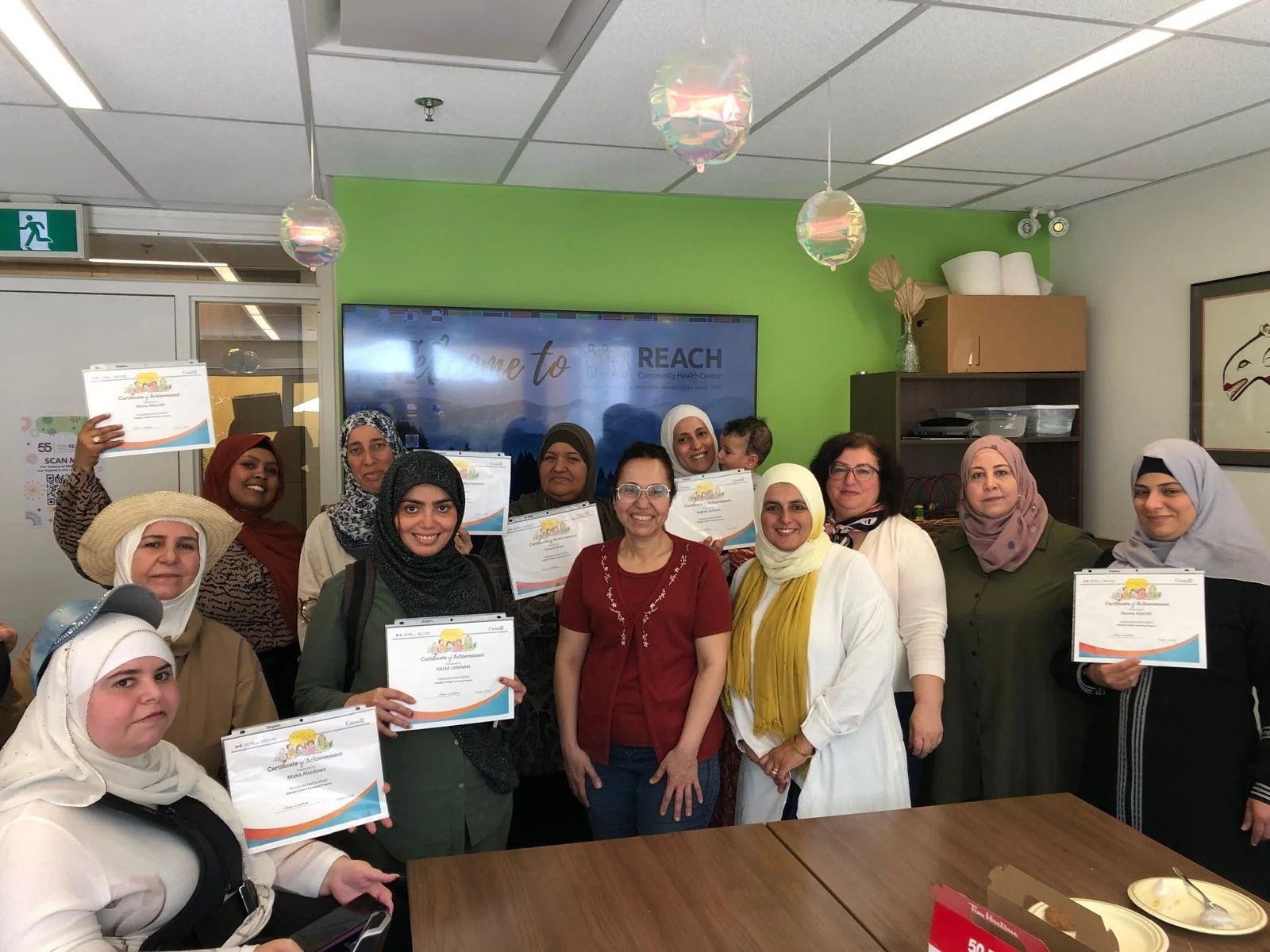“The Anxiety that Exhausted me”
30/11/2024
An awareness lecture on anxiety was provided through the FUN organization.
🌟 Honored to Facilitate the "Nobody's Perfect" Program 🌟
Over the past 5 weeks, I've had the privilege of leading the "Nobody's Perfect" parenting program in collaboration with REACH Community Health Centre. This enriching experience allowed me to connect with parents, share insights on child development, and foster a supportive community. Grateful for the opportunity to contribute to this meaningful initiative. 💙
Judgment: From Harmful to Helpful – A Journey Through DBT Skills
Growing up in a highly judgmental environment gave me a front-row seat to how damaging constant criticism and harsh evaluations can be. It deeply impacted my sense of self-worth, made me second-guess my decisions, and held me back from truly accepting myself. But at the time, I had no idea that one of the biggest invisible weights on my shoulders was, in fact, judgment.
It wasn’t until I started hearing others speak about the negative side effects of judgment that I began to connect the dots. That’s when I swung all the way to the other extreme. I became a fierce advocate for being non-judgmental—firmly believing that judging was always harmful. For a while, that helped me breathe a little easier and feel a bit freer. But deep down, something still didn’t feel quite right. There was a missing piece I couldn’t name yet.
When I started studying mental health professionally, I proudly described myself as a non-judgmental person who rejected judgment altogether. But then came the contradiction: how could I, as a therapist, support clients effectively without evaluating situations or recognizing harmful patterns? I began to realize that judgment has a function—it’s not all bad. In fact, it’s necessary at times. The real question became: how can I judge in a way that helps rather than harms?
That’s when things started to shift. I understood that it’s not about getting rid of judgment, but about using it wisely. It’s not about whether to judge, but how to judge. That insight was a turning point—and one of the reasons I connected so deeply with Dialectical Behavior Therapy (DBT). DBT helped me recognize that judgment isn’t the enemy; it’s our relationship with it that matters.
What Are the “What” Skills in DBT?
DBT breaks down mindfulness into two skill sets: “What” skills and “How” skills. The “What” skills refer to what we do when we’re being mindful. These include:
1. Observe – Noticing what’s happening inside and around us—thoughts, feelings, body sensations, and external events—without trying to change or react to them.
2. Describe – Putting words to our experiences in a factual, non-evaluative way. This helps us clarify what we’re feeling or thinking without attaching harsh labels.
3. Participate – Throwing ourselves fully into the moment, whether we’re talking to someone, walking, or just breathing—without self-consciousness or distraction.
These “What” skills help us stay grounded, especially in emotionally charged situations.
What Are the “How” Skills in DBT?
While the “What” skills focus on awareness, the “How” skills focus on how we do it—how we bring mindfulness into our actions and thinking:
1. Non-judgmentally – Accepting thoughts and feelings without labeling them as good or bad. This doesn’t mean agreeing with everything—it means noticing without adding unnecessary blame or shame.
2. One-mindfully – Doing one thing at a time, fully and with intention. This helps prevent overwhelm and creates a sense of presence.
3. Effectively – Doing what works, focusing on outcomes and values rather than getting stuck in what we should do or what feels comfortable in the moment.
What Types of Judgment Are Addressed in the “How” Skills?
The “Non-judgmentally” skill doesn’t call for eliminating all forms of judgment. It encourages us to distinguish between:
• Harsh, critical judgments rooted in shame, fear, or comparison, which often lead to emotional distress and disconnection.
• Mindful, values-based judgments used to assess what’s effective, what’s safe, and what aligns with our goals and responsibilities.
DBT helps us shift from judging ourselves and others emotionally and reactively, to thinking in more descriptive, objective, and compassionate ways. We still evaluate—but we do it with clarity and purpose.
Final Thought
My relationship with judgment has transformed over time—from rejecting it completely to learning how to work with it skillfully. DBT taught me that healthy judgment isn’t about being right or wrong—it’s about being aware, intentional, and kind. This shift not only helped me as a therapist, but also brought more balance and peace into my own life.
